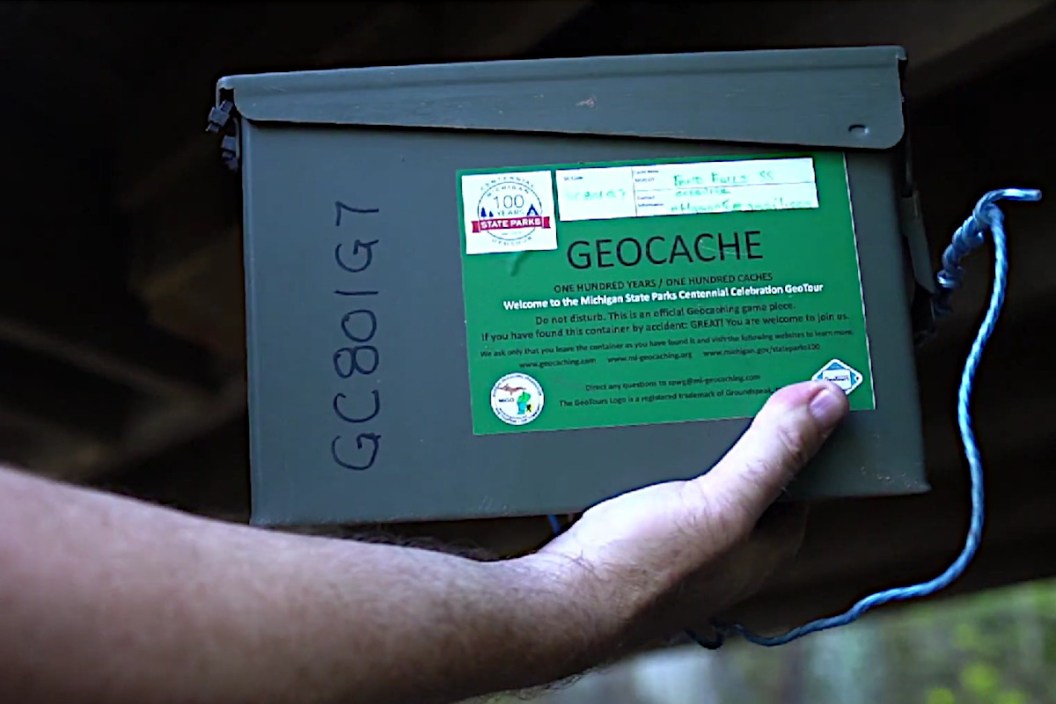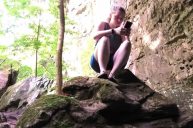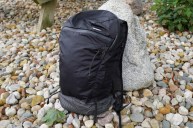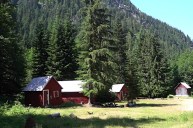Ever find yourself looking for new outdoor activities that can be enjoyed by all members of the family? Geocaching might be for you. For those unfamiliar, geocaching bears many similarities to the popular augmented reality game Pokemon Go. The big difference is geocaching pre-dates it by nearly 15 years and is more location and outdoor-oriented than a game featuring digital monsters. Mostly because you are looking for actual physical containers that are hidden all over the Earth. Odds are you're sitting within a mile of one as you read this without even knowing about it. Geocaching is one of the best ways that I have found for exploring and discovering the world around you. I cannot even tell you how many parks, trails, and nature areas I've discovered that previously went unnoticed by me, despite having lived in those areas my whole life.
Today we'll go over everything you need to get started geocaching today. Historically, this game has a bit of a learning curve to it. Fortunately, in my 17 years in the hobby, that curve has decreased drastically to where almost anyone with a cell phone can get started in minutes. But I'm getting ahead of myself. Let me break it all down for you in this beginner's guide to geocaching.
What is the Point of Geocaching?
I feel like I need to temper some expectations here at the start. Mostly because the main site dedicated to the hobby, geocaching.com, and hundreds of other articles and videos like to describe geocaching as a "modern day treasure hunt." I hate this description. Because people immediately associate "treasure" with something monetary, and many people assume there must be something valuable in geocaches. Well, in the 17 years I've been participating in the hobby, I've found over 20,000 geocaches in more than 30 states and six countries. I can count on one hand the number of times I found something truly exciting in one.
I know a lot of people may hear that and wonder: "What's the point then?" Well, the point is to get outside, to get some fresh air, and to discover new places you may have never seen, and to meet new people you may have never crossed paths with otherwise. For me, it gives more structure to my outdoor adventures. I like to hike, but I enjoy it more when I'm hiking with a purpose, when I know there's a geocache to find next to a waterfall at the end of a long hike.
So, scratch any ideas that you will get rich from geocaching out of your head right now. It doesn't work that way. The description of "scavenger hunt" is a little more appropriate. Personally, I like to think of geocaching as my tour guide to the world, to the places that usually only locals know about like a ghost town hidden in a limestone quarry in Michigan's Upper Peninsula, or a tucked away lighthouse on Scotland's Shetland Islands, two locations I've found through geocaching I never would have seen otherwise.
What is the Best Geocaching App?
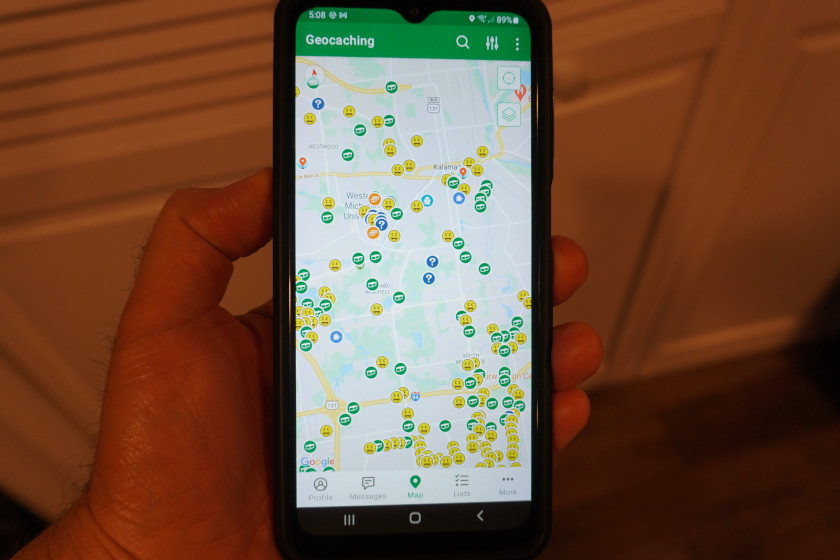
Travis Smola
There are only three geocaching apps beginners should consider when they start, and you only need one to get started. The official Geocaching App is the easiest route, as you'll also need to sign up with a username on their website anyway. It works well enough, but it can also be quite clunky at times. My second recommendation would be c:geo, which is an Android-exclusive application. It runs a bit smoother, and is a hair more accurate than the official app. For iOS users, I'd look at an app called Cachly, although I'll preface this by letting you know I have no experience with that one as I run Android. I have heard great things about Cachly through word of mouth from other cachers though. I will warn it's the only app that you need to buy first. But for $4.99, that's a heck of a deal to get started in geocaching. It's way cheaper than buying a GPS unit.
Personally, I prefer to use a dedicated GPS device. Mainly because it's more accurate. I've been using a Garmin GPSMap64sx for about a year now and it's the best GPS I've ever owned. It puts me right on top of geocaches consistently. It takes more of an effort to load it up using pocket queries on the website, but I never need to worry about losing cell service, or my phone battery dying. The biggest downside to the apps is they are battery hogs. Pack an extra power source if you have one.
Speaking of costs, geocaching is still a free activity. However, if you get serious in it, it's worth paying for a premium membership to unlock more features of the website. Most notable, there will be geocaches that are limited to premium members only. I won't get into all the benefits of a membership today, but $29.99 for a year is a heck of deal compared to the outdoor fun I get from geocaching. It costs less than the subscription streaming services I use for movies and TV.
How Do You Get Started Geocaching?

Travis Smola
Once you open the app and look at the nearby caches available, it's a simple matter of following the GPS in your phone to that location. The single biggest mistake I see from newbies is staring at their navigation device too much, trying to get it to say "0 feet" before they start searching. For as advanced as the technology is, GPS is not perfect. There's a noticeable margin of error based on cloud conditions, and the sun. Even the terrain and buildings can affect the signal to some degree. I usually start looking for the cache itself when my device indicates 20-30 feet away. Look for a fallen tree, a stump, a fence, or some other place where a small container can be tucked in. Watch for a path made by other geocachers in their search. Many geocaches are magnetic, so look under benches, at the bottom of fences, and behind signs. They can be hidden just about anywhere. it gets easier to spot typical hiding spots once you get a few under your belt and you know what to look for as you approach the GPS coordinates. Although every geocache experience can be drastically different depending on the hider, the terrain, and the weather.
If you are still having trouble finding the cache, check the cache page in the app for a hint. They can help you narrow down the location. Another option is to read the logs from people who have searched for the cache before you. I've had many a cache hunt saved from the frustration of a "did not find" because of a subtle clue from a previous finder.
When selecting a first geocache to search for, pay close attention to the level of difficulty, terrain, and the cache size. You will likely see ratings like "1/1" and "2/2.5" on geocaches near you. They are also represented as stars on some apps. Either way, the first number refers to the difficult of the hide itself, and the second refers to the difficulty of the terrain. The difficulty slowly increases with one being the easiest and two being the highest. There are 81 different difficulty and terrain combinations total. I always recommend starting with a geocache rated a 1/1 that is at least a "regular" size. Geocaches listed as "micro" or "small" can be much more difficult and devious depending on the person hiding them. A cache rated 1/1 is a perfect entry point for most newbies to get his or her feet wet.
I highly recommend bringing your own pen to sign the paper log when you find the geocache. Most geocache containers are small, repurposed peanut butter jars, ammo cans, soda bottle preforms, hide-a-key containers, or pill bottles that have no room for a writing utensil inside. I personally use a self-inking stamp with my username on it that I ordered online.
What are the Main Rules of Geocaching?
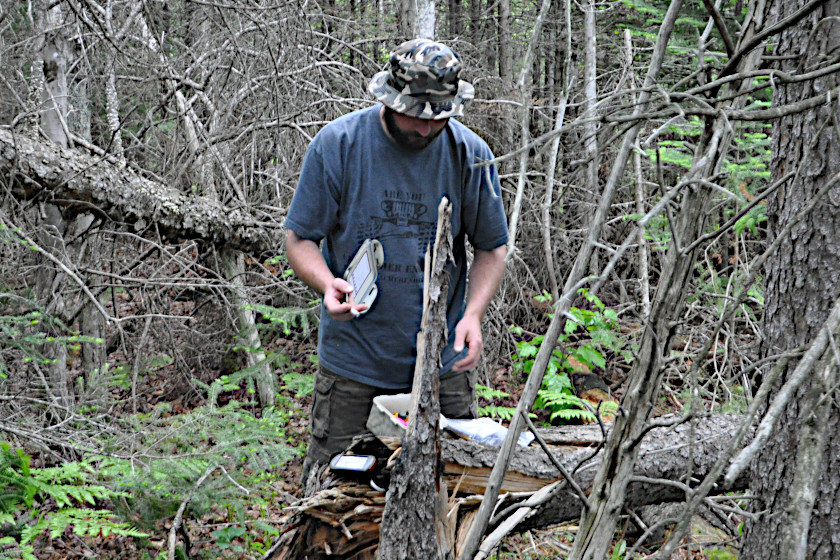
Travis Smola
Geocaching is extremely simple. When you find one, simply find and sign the logbook with your username to prove that you were there. Then you can log your find on the website. This triggers an email to the cache owner (the person who hid it) to let them know it has been found. These logs help them monitor the geocache because they sometimes get damaged, or come up missing, necessitating a replacement. Try to avoid spoilers on how the cache was found in your log, so as not to ruin it for the next person. If the geocache is large enough, there is a chance it will contain "swag" items. It's usually small, inexpensive toys or small touristy-type items. As I mentioned earlier, I can count on one hand the number of trinkets that were truly interesting. Most of the stuff I find in geocaches might be exciting to a child, but most adults are likely going to be disappointed. The fun is in the hunt for the cache itself. You'll understand better once you find your first one.
For those who do find something they like in a geocache, the rules are to leave something of equal or greater value in its place if you decide to take it. For instance, maybe your kid takes a new matchbox car. You could leave a yo-yo or some other small toy in its place. Trade fairly, do not place random items like pinecones, rocks, receipts from the gas station, or other junk in the geocache. You want the next person to have the same experience you did. After you close the geocache back up, re-hide it in the same place you found it. It's as simple as that. To expand slightly on what we just touched on, the following items should NEVER be placed in geocache. Most of this should be common sense. Remember it's a family-friendly activity.
- Food or candy
- Fireworks or ammunition
- Anything containing liquid
- Hygiene products (toothbrushes, tampons, etc.)
- Drugs
- Alcohol
- Knives/multi tools
- Lighters
In case you're wondering, I have seen almost every single one of the items listed here placed in a geocache before. Stuff like ammunition or drugs are exceedingly rare though. I chalk it up to people who don't know the rules before finding their first one. The two most common mistakes I see are food and water. Bottles of bubbles are the single worst offender. I know people mean well leaving them as something for the kids, but they always, and I mean ALWAYS, leak and destroy everything else in the cache. I also had someone once put a glass snow globe in one of my caches. It was out there in winter in single digit temperatures, which caused the water to freeze and the glass to shatter. Not only was everything inside soaked and ruined, the container was also filled with glass shards. I cleaned it up before the next finder could discover it, and fortunately that's the only time that's happened. Again, a rare incident, but something to remember. Just stick to small toys, collector cards, coins, flashlights, or small, non-fragile souvenirs please.
That's it for the basics of geocaching for beginners. There are lots of other cache types beyond the standard traditional geocache, but that's a subject for another day. Everything I've outlined here is the basics of what you need to know to get started. Consider giving it a try this year, it's a fun, cheap activity for the whole family, one that has enriched my life greatly with the places I've been and the friends I've made along the way. I love to combine geocaching with other outdoor activities like hiking, biking, kayaking, ATV riding, and more. There is almost no end to the creativity in combining the search for hidden containers with other things. I personally love to go camping in a new location and spend a few days searching for geocaches in a place I've never been before. As I said, geocaching makes for an excellent tour guide.
For more outdoor content from Travis Smola, be sure to follow him on Twitter and Instagram For original videos, check out his Geocaching and Outdoors with Travis YouTube channels.
